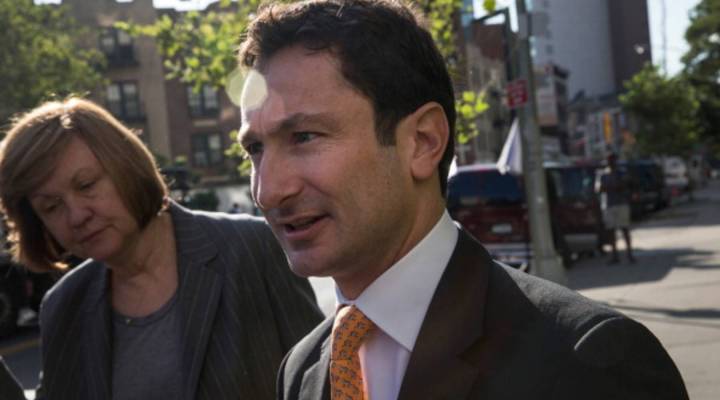
Fabrice Tourre is fabulous, but why is he so lonely?

The trial of Fabrice Tourre started today. Does that name ring a bell? Perhaps you remember him as “Fabulous Fab” and recall a big deal he worked on at Goldman Sachs.
The Securities and Exchange Commission sued Goldman and Tourre in 2010, alleging they misled investors while selling subprime mortgage investments — which later failed spectacularly. Goldman settled for $550 million, in what was then the biggest SEC penalty, without having to admit to fraud.
Tourre, who has left Goldman and maintains he is innocent, decided to fight to clear his name. But he’s the only current or former Goldman banker on trial in the New York courtroom. And as fabulous as “Fab” might have been, he was also a relatively junior executive.
“One of the questions the jury is likely to have is, ‘Why is it the SEC prosecuting somebody who is of relatively low rank for what’s claimed to be such a major fraud and violation?'” asks Joe Grundfest, professor of law and business at Stanford University and a former SEC commissioner.
It’s often hard to link senior executives to specific products, says James Cox, a corporate and securities law professor at Duke University. Higher-ups may know about certain trades, but their culpability in alleged misdeeds is harder to prove.
“It’s pretty easy to isolate the salesman’s involvement,” he says, “but when you start going into how it all got assembled and who knew what when, it becomes fuzzier.”
Not to mention, a whole lot more expensive to fight, says Cox, because companies will call in their legal A-teams to protect the people in the C-suites. “If you start going after senior level individuals, you have got the tiger by the tail,” he says.
And the SEC really needs a guilty verdict, says Los Angeles-based securities attorney Lance Kimmel. The commission lost a similar case against two Bear Stearns hedge fund managers in 2009.
“This might give the SEC their first case victory for people they allege showed this extreme arrogance in the years leading up to the financial crisis,” he says.
In other words, says Kimmel, even though justice may not be wholly served, the SEC may just want to fight the fight it can win.
There’s a lot happening in the world. Through it all, Marketplace is here for you.
You rely on Marketplace to break down the world’s events and tell you how it affects you in a fact-based, approachable way. We rely on your financial support to keep making that possible.
Your donation today powers the independent journalism that you rely on. For just $5/month, you can help sustain Marketplace so we can keep reporting on the things that matter to you.


















